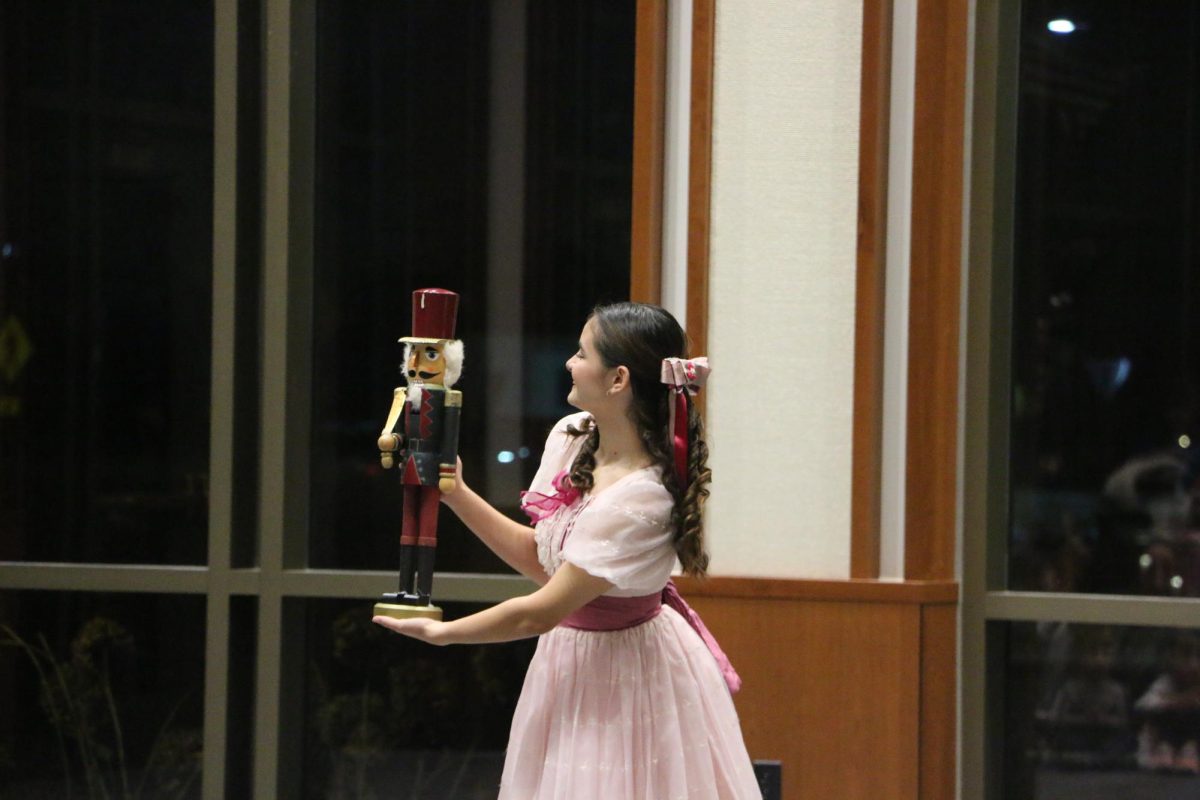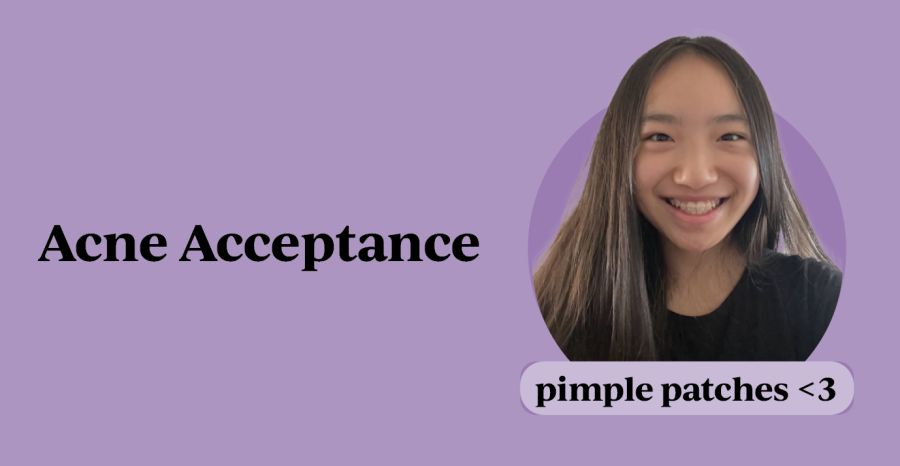I used to love my skin. Before my sophomore year, I rarely had acne problems. Perhaps because of hormonal changes, an increase in stress or maybe even the fact I had a mask on every day, red inflamed bumps began appearing on my face and I became increasingly insecure about what my skin looked like. On days when my skin was particularly red, I wore a mask to hide my acne only to realize that wearing a mask was further irritating my skin.
My experience is not unique. According to a Johns Hopkins study, roughly 85% of adolescents have acne. However, acne is often misrepresented or not represented at all in the media. I recently watched Netflix’s “Never Have I Ever,” a show about high schoolers, yet almost everyone had perfect, blemish-free skin on screen. The only time I saw a pimple appear was in the episode titled “Never Have I Ever Been The Loneliest Boy In The World.” In this episode, one of the characters, Ben Gross—who normally doesn’t have skin flaws—has a pimple. The entire episode fixates on his isolation from friends and family because of the acne. To add to the theme of depicting Ben as an outcast, he also overhears his classmate’s mother saying he has the nastiest pimple she has ever seen as a dermatologist. When acne does appear in the media, there is often a negative light around it. Otherwise, it is edited out using digital retouching.
At the same time, the use of technology to edit skin imperfections is present in my own life. It is almost a habit for me to turn on “enhanced mode,” which blurs my redness and smooths my bumps on video. Using editing apps that allow me to manually circle the pimples on my cheek and adjust a slider to clear my blackheads, I can quickly remove acne in a photo before posting it to social media.
But why should I feel the need to hide my acne? Why does society alienate and antagonize acne when it is such a common skin condition?
National Acne Positivity Day is on Sept. 1; with that date in mind, we need to normalize having acne. We need more characters in TV shows with acne, and not just ones who appear for one dramatic episode about how they overcome the skin condition. We need more representation of people with acne in social media campaigns. I’m not advocating that everyone should stop treating their acne and start loving their skin. Acne can be painful without treatment and, ultimately, it’s not realistic to love your skin and how it looks every day, especially living in a society where clear skin is a beauty standard. But living with acne is a reality for a majority of young people. It’s time to break the stigma around a person for having acne, to accept different skin conditions and to not define worth around what someone’s skin looks like.
The views in this column do not necessarily reflect the views of the HiLite staff. Reach Lorna Ding at lornading@hilite.org






























![Keep the New Gloves: Fighter Safety Is Non-Negotiable [opinion]](https://hilite.org/wp-content/uploads/2024/12/ufcglovescolumncover-1200x471.png)














































![Review: “Wind and Truth” is the perfect ending [MUSE]](https://hilite.org/wp-content/uploads/2025/01/wind-and-truth.jpg)
![Review: Survivor’s 47th season cements itself as one of the greatest seasons of reality television [MUSE]](https://hilite.org/wp-content/uploads/2025/01/Survivor_47_logo.webp)
![Video Review: Carmel Bazbeaux [MUSE]](https://hilite.org/wp-content/uploads/2024/12/Screen-Shot-2024-12-24-at-2.12.20-PM-1200x681.png)
![Review: "Our Little Secret" is a classic holiday movie: cheesy, unrealistic, unnecessarily long [MUSE]](https://hilite.org/wp-content/uploads/2024/12/lindsay-lohan-our-little-secret-netflix-2-e1734904489539-1200x780.jpg)
![Video Review: Carmel BuffaLouie's [MUSE]](https://hilite.org/wp-content/uploads/2024/12/Screen-Shot-2024-12-24-at-2.08.33-PM-1200x685.png)
![Review in Print: Maripaz Villar brings a delightfully unique style to the world of WEBTOON [MUSE]](https://hilite.org/wp-content/uploads/2023/12/maripazcover-1200x960.jpg)
![Review: “The Sword of Kaigen” is a masterpiece [MUSE]](https://hilite.org/wp-content/uploads/2023/11/Screenshot-2023-11-26-201051.png)
![Review: Gateron Oil Kings, great linear switches, okay price [MUSE]](https://hilite.org/wp-content/uploads/2023/11/Screenshot-2023-11-26-200553.png)
![Review: “A Haunting in Venice” is a significant improvement from other Agatha Christie adaptations [MUSE]](https://hilite.org/wp-content/uploads/2023/11/e7ee2938a6d422669771bce6d8088521.jpg)
![Review: A Thanksgiving story from elementary school, still just as interesting [MUSE]](https://hilite.org/wp-content/uploads/2023/11/Screenshot-2023-11-26-195514-987x1200.png)
![Review: "When I Fly Towards You", cute, uplifting youth drama [MUSE]](https://hilite.org/wp-content/uploads/2023/09/When-I-Fly-Towards-You-Chinese-drama.png)
![Postcards from Muse: Hawaii Travel Diary [MUSE]](https://hilite.org/wp-content/uploads/2023/09/My-project-1-1200x1200.jpg)
![Review: "Ladybug & Cat Noir: The Movie," departure from original show [MUSE]](https://hilite.org/wp-content/uploads/2023/09/Ladybug__Cat_Noir_-_The_Movie_poster.jpg)
![Review in Print: "Hidden Love" is the cute, uplifting drama everyone needs [MUSE]](https://hilite.org/wp-content/uploads/2023/09/hiddenlovecover-e1693597208225-1030x1200.png)
![Review in Print: "Heartstopper" is the heartwarming queer romance we all need [MUSE]](https://hilite.org/wp-content/uploads/2023/08/museheartstoppercover-1200x654.png)




